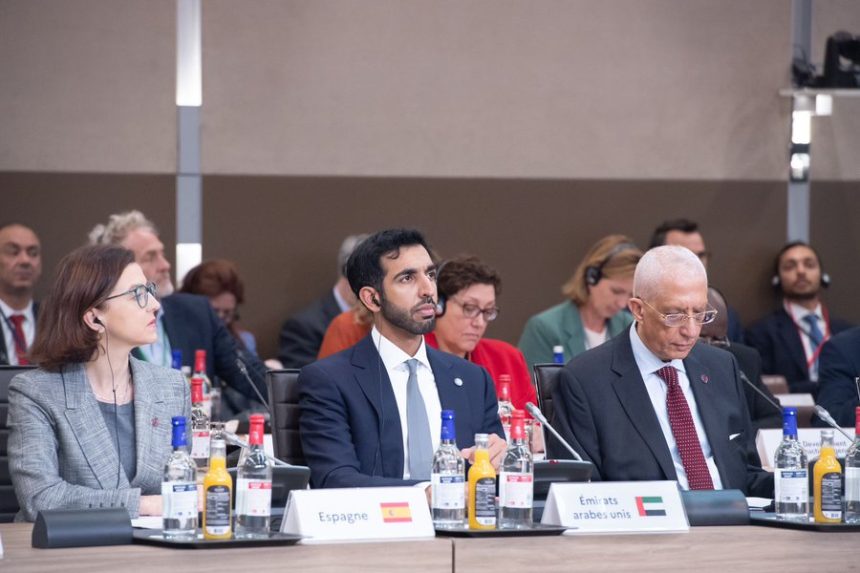UAE Budget Surplus Forecast by the International Monetary Fund (IMF)
The International Monetary Fund (IMF) expects the United Arab Emirates (UAE) to achieve a strong surplus in its primary budget this year (2024).
According to the “Fiscal Monitor” report, this surplus is likely to be over 5.2% of GDP (Gross Domestic Product).
The forecast suggests the budget will continue to record high surpluses until 2029, with an average of 4%.
The primary budget surplus in 2023, which was 6.9% of GDP, is the second-highest average surplus of the past ten years.
This comes after the surplus recorded in 2022, which was around 10.4%.

The report details the expected surpluses for the coming years as follows:
- 2025: 4.7% of GDP
- 2026: 4.5%
- 2027: 4.2%
- 2028: 4%
- 2029: 3.8%
According to the report’s data, government revenues are expected to reach 31.2% of GDP this year, compared to 32.2% in 2023.
The forecast suggests that government revenues will remain high, close to 30% of GDP, until 2028.
More specifically, government revenues are expected to be 30.7% of GDP in 2025 and 30.4% in 2026.
They are then projected to decline to 29.9%, 29.6%, and 29.3% in 2027, 2028, and 2029, respectively.

Noticeable Increase in Public Spending for Current Year.
On the subject of government spending, the IMF expects the UAE to maintain stable levels of public expenditure for the next five years, exceeding 26% of GDP.
The report suggests that government spending could reach around 26.6% of GDP this year, compared to 25.9% in 2023.
This indicates a noticeable increase in public spending for the current year.
The IMF report confirms the strong financial position of the UAE and its commitment to sound fiscal management.
#UAE and #CostaRica are committed to developing resilient and sustainable economies based on innovation. pic.twitter.com/HsMPHZYYxy
— UAE Voice (@uae_voiceeng) April 18, 2024
Important Notes:
- These forecasts are based on data and projections available at the time of the “Fiscal Monitor” report’s issuance.
- Actual figures may differ from the forecasts due to changes in economic conditions or fiscal policies.
For more information, please refer to the “Fiscal Monitor” report by the International Monetary Fund.
Read Also:
A Comprehensive Proactive Plan For Extreme Weather Conditions
UAE and Costa Rica Develop Flexible Sustainable Economies
Public Consultation by Ministry of Finance on R&D Tax Incentive





